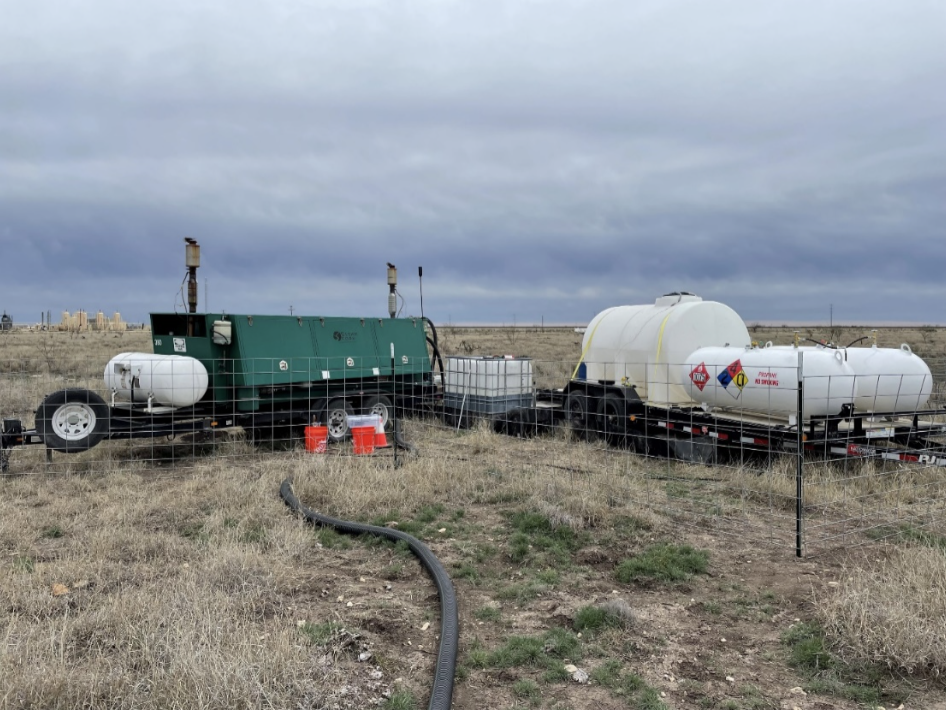Client: Confidential
Project: Groundwater Investigation / Mobile Dual-Phase Extraction (MDPE)
Groundwater Project in Crockett County, TX
Project Characteristics: Ensolum, LLC (Ensolum) Consultants worked closely and collaborated with the
landowner and state agencies on a pipeline release resulting in 13,000 barrels spilled.
Ensolum conducted initial site investigation with installation of 41 monitoring wells (MW), 15 recovery
wells (RW), and 2 deep monitoring wells (MW-“D”). Sonic drilling was utilized to investigate groundwater,
potential karst features, and a light non-aqueous phase liquid (LNAPL) contaminant plume in the
subsurface.
Our geologists identified and characterized the initial groundwater-bearing unit (GWBU) as required by the
Railroad Commission of Texas (RRC) and University Lands (UL). A groundwater characterization test
confirmed it was Class 3 groundwater. Sampling results confirmed the presence of LNAPL in the GWBU.
Based on the size of the release, there was a potential risk to deeper GWBUs including the Edwards-Trinity
aquifer. The Edwards-Trinity aquifer is a significant source of freshwater for a large portion of southwest
Texas.
Ensolum geologists identified an impermeable layer of highly bioturbated wackestones interbedded with
light gray to white, lenticular, stylolite-rich, bioclastic packstones, suggesting the aquifer was not impacted
by the release. Additional investigation by Ensolum geologists and hydrogeologists confirmed through
additional groundwater sampling, that the Edwards-Trinity aquifer had not been affected by the release.
Most recently, Ensolum conducted a short-term (90-day) MDPE event to evaluate recoverability of LNAPL
in the subsurface. The results are being utilized to design and recommend an approach for full-scale active
remediation that is compliant with regulatory requirements and consistent with the client’s project goals.

